Profile
Blog
Photos
Videos
The moment you've all been waiting for is finally here. I am blogging again! After, oh God it's been three months (and then some), I'm finally far enough down my to-do list that I can once more sit down and distill my experiences and musings so that my blog might re-emerge, Lazarene, for the delectation of my legion of admirers (although I did quit Facebook back in January so I'm not expecting circulation to reach the giddying heights of previous posts without help from the Faustian pact that site represents).
With that riveting introduction over, there was one conversation I had with one of my teachers that I think is worth reproducing, and wouldn't really fit anywhere else in the book, so here it is. Somehow in our literature class we ended up talking about adoption, and she told us that not only is it incredibly rare in China, the government actively tries to make it difficult. Nothing to do with the one-child policy (that's more focused on stopping the children from being born in the first place); 'dynastic' ties and the emphasis on bloodline continuity are just so strong that it's apparently depressingly common for parents to be utter b******s to an adopted child, particularly if they also have a child of their own. Also, the stigma against adoption can make it literally traumatic for a child to find out s/he's adopted. My teacher was seriously considering adopting a child after the catastrophic Sichuan earthquake in 2008 but it would have been almost impossible to get permission despite the thousands of orphans the earthquake left behind, and the entire rest of her family was dead set against it, husband, parents and in-laws all. Historically, the stigma was so strong that when families adopted a baby they'd often move house in order to be away from any friends or relatives who might let the truth slip out. Even today, my teacher says she knows of several colleagues whose children are adopted, and the few people who know which children are sworn to absolute secrecy.
Anyway, on that depressing note, I suppose I'd better pick up the story of my year abroad where I left off, which if I'm not much mistaken was just before Christmas.
Shortly before term ended, we received an email from Wang Fang, the woman at Peking University who's 'co-ordinating' our course. Apparently there was some kind of Chinese poetry expert giving a talk and we were invited. Idiot that I am, I thought it might be a way to fill up a free evening, proof of how my language abilities had progressed and maybe even interesting. It turned out to be one of the most baffling wastes of time I've yet had the misfortune to go through. As is par for the course in China it started 40 minutes late and took an hour longer than expected. Also, I was the only non-Chinese person in the audience, which didn't bode well. The expert was a tiny, wizened old Taiwanese woman who was clearly a big deal in the fast-paced world of classical Chinese poetry - 50 years as professor of Chinese at UCB and some time at Harvard. Both the host of the talk and the host of the cultural TV show she had been on (that they insisted on showing almost all of) insisted on calling 'Mr. Ye' (叶先生) "because she was so distinguished." She seemed more than happy with this.
They spent a while talking about the different kinds of tone used in Chinese poetry (ping and ze, in case you were wondering. Oh, and ru, but there's no equivalent for that anymore in modern Mandarin - such a pity). Then she sang a poem by Du Fu (one of the most famous Tang poets - personally I can't stand anything he wrote) and the crowd reacted as if they were at a Metallica concert and she'd played the beginning of Master of Puppets. I was slightly worried she'd do a stage dive and break her hip. A woman was plucking away at random intervals on a zither throughout this, only to stop as piped piano music came on over the speakers to shut her up. Then after a while Canadian professor came on to discuss the time he'd spent working with her and the music changed to crappy talkshow sound effects. Suddenly the air was filled with boings and swanee whistles. Then he started singing his favourite Chinese poem (which isn't even a good one), Chinese-style, in English. He was presumably hoping for a similar reaction to what the woman had received, but all it got from the crowd was awkward laughter. Ha. His Chinese wasn't even that good.
The next thing I knew, a pretty woman had come on in a sparkly qipao dress and begun a bizarrely good impression of 80s Taiwanese pop singer Teresa Teng. It was around this time that I started to get very confused. Apparently the lyrics were taken from a Song dynasty poem, which shows the enduring hold of classical poetry on Chinese national culture and consciousness or some such nonsense. It's irritating just to type those words. Anyway, after a while this 'Mr. Ye' sang a poem she'd written herself, which was clearly what the evening (by now night) had been building up to. I didn't have a clue what it was about, and then it went into a f***ing question-and-answer session. At this point I finally got up and left.
Right, on to less infuriating stories. Let's talk about the famously calm and stressless season of Christmas. For the first Christmas I've ever spent away from home, on the other side of the world's greatest landmass and surrounded by a society for whom the 25th of December was just a normal Wednesday like any other (we were even supposed to have classes!) albeit with almost as much crass commercialism trying to make easy money off Christmas as at home - some things never change - it was actually a rather pleasant experience. Chloe discovered a catering company that promised to do a Christmas dinner, and the 5 or so diehards still in Beijing leapt at the offer. Combined with the Christmassy tablecloth, cake, crackers and sherry I'd brought out from home and the creativity of the girls in creating a bona fide trifle and Christmas pudding, Xmas dinner turned out to be about as close to the real thing as its possible to get in China. Awful sweaters and cheesy music were of course a given, turning the flat we held it in into our own little slice of home amongst the smog. The next few days all followed a similar pattern - I'd head over to their flat and we'd demolish leftovers, drink heavily and watch movies all crammed into the sofa. Bliss.
New Year's was a slightly stranger night. For one thing, we had exams all that week (except for the 1st of January itself, a tiny concession to the Gregorian calendar apparently only made to foreign students). I ended up spending the evening making exchange rate calculations to check if I was better off using a promotional code with Western Union to bring over as much money as possible then and there, dipping into the overdraft and letting later student loan instalments make up the imablance, as opposed to banking on the exchange rate getting much more favourable and simply making debit card withdrawals later on (if you look up 'hedonism' in the dictionary there's just a picture of me). It turns out I was, and with a few hours left before the code expired and the transaction would have been literally 1% more expensive, the wheels were set in motion on very favourable terms and I could spend the last three hours of 2013 celebrating my own genius. For some reason most of my class wanted to ring in the new year in a nightclub on the other side of town, and I couldn't imagine anything more ghastly, so after meeting up at an all-you-can-eat sushi place, Christoph and I went back to mine. We finished off the whisky I'd been given as a housewarming gift by a friend from home who stayed over back in August, and listened to seemingly endless repeats of Auld Lang Syne and the Blue Danube (apparently that's the big new year's anthem in the Austrian cultural sphere).
That weekend was, finally, the end of a term that had begun on the first of September with only one week off in October. Strangely, it was a holiday for spring festival (aka Chinese New Year), which was really early this year, but we had a month off before it and only two weeks after. Anyway, it's very much the tradition in China to go home for spring festival, which means Beijing is pretty much a ghost town. Most of our class had plans to go somewhere nice for the festival (Kyoto and the Philippines being notable examples) or had just stayed at home after Christmas, but there were three of us, myself included, who'd just not gotten around to making plans and were faced with some rather grim weeks in a deserted world of grey. On a whim we ended up accepting the offer of a random Chinese student none of us had met. A month or so before, she'd sent out an email to the Oxford and Cambridge classes inviting us to her home in Henan province for the festival and the week or so afterwards, and we thought, why not?
And so, on the big day (the celebrations take place in the late evening) we all hopped on one of the many jam-packed trains leaving Beijing for Zhengzhou in Henan. As well as being where this Chinese girl - Li Chao - lived, as the capital of one of China's central provinces it's the biggest rail hub in the country. Anyway, we set off with beautiful weather, congratulating ourselves on having gotten through the winter (after all, it was officially spring, or else why call it the Spring Festival?), but the smog and cold quickly set in as we left Beijing for the area around it, to which all the really polluting industry was moved in the run-up to the 2008 Olympics. We lost sight of the sun completely as we passed through an enormous power station in a drab little city called Matou, exactly like all the other drab little cities along the route. Eventually it got dark as opposed to simply dim, and we saw small bonfires and lanterns wherever we passed people, which made a nice change. After arriving, we took a taxi to Li Chao's home - a small apartment block which her parents apparently owned - and went to our rooms. Sam and I shared a twin room and Coirle had a double all to herself. We unpacked quickly and headed upstairs for the famous spring festival dinner.
Now this wasn't the richest family in the world, but I'd always had my suspicions that spring festival dinner was somewhat less impressive than Christmas dinner, and that meal did nothing to allay them. The tradition is to eat dumplings at the spring festival, which apparently symbolise the whole family being reunited around the table (because they're round or something). Now, I like dumplings, and the ones we had were certainly lovely, but they're also one of the most common foods in China, so that was something of an anticlimax. Li Chao's family was lovely though, or at least her dad was and her mum seemed to be - having spent presumably all day making the food, she then didn't come through and eat with us. It's not what women do, particularly not women of that generation in lower-tier cities. Anyway, her father taught us a Chinese drinking game as we made our way through copious amounts of baijiu, and seemed tickled pink that Coirle, a woman, was joining in (neither Li Chao nor her elder sister drank any). Slight diversion now, as I teach to you the rules of the ancient and transcendentally mysterious Oriental drinking game known as huaquan:
Two players sit opposite each other, much like rock-paper-scissors.
Rather than picking one of three choices, you both extend anywhere from 0 to 5 fingers, and shout out the number from 0 to 10 that you guess will be the total.
If one player guesses right, the other player drinks. If not, repeat. If both guess right,... I'm not sure. That didn't come up. You both drink, presumably.
It has the advantage of being a little bit more tense than rock-paper-scissors, since you don't drink every time. You end up just screaming out Chinese syllables that you hope are numbers and throwing random hand gestures by the end. So, we all got good and drunk playing that, with firecrackers going off just outside making it sound like a warzone. The huge national spring festival gala show was playing throughout on the tv that had been placed at one end of the table. They only started doing the show a few years ago but it's already a national institution, with as much as half of the country watching it. I don't remember much of the show except for Jackie Chan doing kung fu, a French woman awkwardly singing La Vie En Rose in French with the chubby, ponytailed man who seems to China's answer to Gary Barlow and a girl who spent about five hours spinning on the spot in the background throughout the entire show. It was actually quite good though.
What was really strange was that the whole country seemed to call it a night at around 10:30pm. The show wound down and the family got ready to go to bed, bemused to see our surprise that proceedings weren't carrying on until midnight. In the spirit of, erm, cultural understanding, we three kept things going in mine and Sam's room until a stupidly early hour with the booze we'd brought with us. New Year is New Year, whichever day you celebrate it on.
The next day, nursing hangovers of varying degrees, we (minus the mother, of course) piled into the family car for a trip to the Shaolin temple. Hopefully only because of the firecrackers and the fact that it was also misty, the smog was worse than anything I'd so far encountered in Beijing - we couldn't even see the tops of the buildings we were driving past. Smoking as he drove, the father seemed to be navigating by the hazard lights everyone had switched on (foglights? What's that?). Suddenly, a stream of cars was coming back the wrong way down the exit we wanted to take to get on the nice shiny multi-laned highway that would take us straight there. It turned out they'd closed all the nice shiny multi-lane toll roads because the smog was so bad. So, we ended up taking the same bumpy, potholed, unfinished road that all the lorry drivers in China had apparently decided to drive down that day, which had cliffs on either side that seemed to go on forever in the smog but were probably only about 10m high, in our tiny little bread van that seemed to be made out of tinfoil and whose only safety feature was a(n unused) seatbelt on the driver's seat. Fortunately I was less hungover than the other two and managed to keep myself cheerful through all the bumps and near-misses with a healthy dose of schadenfreude.
Finally, we arrived at Shaolin temple. The smog seemed to have been largely replaced by mist, so it was actually quite nice and atmospheric, but my phone was on low battery so I didn't get any pictures. The martial arts show was awesome, we got treated like celebrities because we were apparently the only white people for miles around (strangely this was the only time that happened - every other place seemed to be as indifferent to us as Beijing), and there were loads of ancient trees and stupas to gawk at (the temple was founded in 494AD by the creator of Chan (Zen) Buddhism) if you could squeeze through the hordes of people. Then it was time to go back. The way we'd come. At night. With even less visibility. The less said about that drive the better, but it's one of the only times I've ever been genuinely fearful for my life. The note I made in my phone at the time to sum it up was: "More to follow later, if I survive."
And survive I did, with all my limbs and everything. It was a Spring Festival miracle. The next day, thankful for every new breath we were taking, we stayed in Zhengzhou and went to see the Henan provincial museum. Actually, it was quite cool. As one of the provinces of the North China plain which historically was the centre of Chinese civilisation, there was obviously more old stuff worth putting on display in glass cases in the province than even the Cultural Revolution could destroy. Dubious 'stone tools' in the early civilisation section aside, there were some genuinely amazing old bronzes from the Zhou dynasty and oracle bones from even older. Then a guest exhibit on African tribal weapons, which was pretty cool too. It's all in the photos I've uploaded and just can't find the energy to comment on individually.
The next day we got up so early, in our freezing cold building (Henan's far enough south that until recently most buildings weren't built with heating installed, but it was still VERY cold) that it felt like camping. The itinerary for that day was a trip by train to Kaifeng. After the ridiculously perfunctory security check (a quick grab of my wallet through my pocket was apparently all it took to prove I wasn't a crazy Tibetan separatist) we set off. Pollution was again ridiculous - even the official Chinese figure said it was 494 - but we just had to suck it up. That's China for you.
Kaifeng was the capital of the Northern Song Dynasty (960-1024 I believe) which was famous for its culture, and a huge amount still remains of the old city, so naturally the big attraction nowadays is the Song Dynasty theme park built in the 90s. Utterly plastic and Disneyish but quite good fun. One of the big things to see was a dance show with all the traditional Chinese instruments you often see in museums actually being used. As cool as it was to see bells the size of human torsos actually being played, it was slightly weird to think we were essentially in a replica of the thousand-year-old equivalent of a stripclub. Who knows, maybe a thousand years from now people will treasure 'Cherry Pie' and 'Pour Some Sugar On Me' as ancient classics from a bygone era, and breast implants will seem as disgustingly unsexy as footbinding.
A few other things we encountered at that theme park were a historical reenactment of the story of Yue Fei (a hero-general who resisted barbarian invasions, but was framed for treason by a treacherous court official and executed), an arena show that turned out to be a cockfight (Coirle and I left before it started), finches trained to take small amounts of money out of people's hands (only if they were holding the money out of course), and an utterly delicious food called 羊肉炕馍. Out in the town, we bumped into a rickshaw puller named Jason who told us proudly that he was listed in the Lonely Planet 2011 guide for his 'reasonable' English which was actually fantastic, before wandering around the city a while to kill time before the train. We'd had to get to the station fairly quickly, and missed out on visiting a scenic garden, only for the train to leave an hour late. Then, on the bus from the train station to Li Chao's house, we had an incredibly awkward discussion with her about how she wasn't racist, she just personally didn't like black people or have any desire to get to know any. Eagle-eyed readers may already have spotted that this is precisely what 'racism' means, but she didn't seem to agree. 'Racism with Chinese characteristics' perhaps.
The next day we woke up slightly later because this time we were headed for Luoyang, like Kaifeng an ancient imperial capital. A river runs through the city, and carved into the cliffs along its edges as you leave the city are the Longmen grottoes, a group of Buddhist shrines carved into the rock which date back to the Tang Dynasty. The weather was much better than it had been previously and Luoyang struck me as a genuinely pleasant city as our bus drove through it, so even though we left the house at 9:15 and only reached the grottoes at 3 I'd still say it was by far the nicest day of the trip. The pictures I took of the caves speak for themselves, although particularly in the case of the huge central panorama with the giant statues they fail to do it justice. Suffice it to say that the whole place was fantastic, if huge and exhausting to walk around in its entirety.
On the other side of the river and included in the ticket price was a luxurious villa built by Chiang Kai-Shek (Generalissimo of the Republic of China - something of a big dog) as a country shagpad for him and his wife whilst he was based in the province to do what he loved, i.e. crush underground Communist movements. For the home of such a controversial figure it was surprisingly and refreshingly free of propaganda, but I suppose anyone who visits already knows that he was a detestable counter-revolutionary and champion of criminal elements who perverted and almost destroyed Sun Yat-Sen's Revolution before being expelled to Taiwan and saved only by his American imperialist masters. Or that he was a skilled military leader who had to defend the revolution against the Japanese from without and the Communists from within, finally having to retreat to Taiwan and keep the Republic of China alive as Sun's legitimate successor, depending on which side of the strait you come from. Also within the grounds was the first restored Chinese Buddhist temple I've seen, despite the fact that I've tried twice now to visit the huge one in Beijing only to get sidetracked or lost, and it was beautiful.
Finally came the gravesite of the Tang poet Bai Juyi, one of the big names in the poetry of the era (the others being Li Bai, Wang Wei, Meng Haoran and (apparently) Du Fu, but you of course already knew that). As a fairly obvious fake with everything built out of the same horrible stone-imitation concrete as pretty much all other recently-built tourist attractions, it was slightly underwhelming after seeing so much that was legitimately old earlier in the day. By this point it was already getting dark and I was doubtful we'd make it to the station in time for our train, but miraculously we ended up in the taxi of one of the few drivers in China who could drive both well and quickly.
Side note: there was a huge amount of Party activity at the station, more than I've seen in all the rest of my time in China combined. Soldiers in (dress) uniform kept cropping up; when we arrived, one of them was stood in front of a ramp in the platform marked 'special use only' that led downwards. When I sneaked a peek, I saw three shadowy figures down it talking to one another, and a fourth standing a short distance away. Then, as we left there was another(?) group of three outside our train window, all with red armbands on. The only one I could see the writing on read 'Party member shock troop brigade' (annoyingly I didn't note down the characters so can't correct that probably incorrect translation). All very cold-war-ish, but in all likelihood it meant nothing more than that surprise inspections were being carried out that day.
After that came our last full day in Henan. We had a lie-in before travelling just outside of Zhengzhou to the Yellow River scenic area, which consists of a huge, Mount-Rushmore-esque statue of the heads of Yan and Huang, two of the earliest and most mythological emperors in China's history, looking out over a vast panorama of the Yellow River and the North China plain beyond, all at a spot where Chairman Mao once made a famous speech about how the mighty river reflects the indomitable will of the Chinese people. Unfortunately it wasn't showing itself off to its best. The sky was laden with clouds, which meant our old friend the smog had also come back; the trees were bare and the river so low we could walk hundreds of metres out into the bed without getting our feet wet because it was February and there'd been no rain for months; oh, and the whole thing was only built in the Nineties, so hello concrete-pretending-to-be-stone. Again.
Walking away from the main path slightly we chanced upon a peacock garden which was nice if a little incongruous, but then just as we were starting to get lulled into a false sense of everything-here-seems-reasonable-ity, as we came out on the other side we saw a small archery range set up for young kids to have a go on. All very normal, except the targets were red circles on a white background. With the slogan 'Never forget national humiliation' (不忘国耻) written above them. Yep, someone had decided that right there was the perfect place to remind young children that f*** JAPAN!!!
It was such a shame, because there were some really nice trails in the surrounding mountains and I'm sure the park looks great on a clear day when there's actually a river to see. On that day, however, it pretty much summed up everything that China gets wrong about tourism, history, scenery and not-ramming-hatred-of-Japan-down-everyone's-throats-at-every-possible-opportunity-ery. It finally started snowing on the way back into Zhengzhou though, which was nice.
So, that was Henan. A province of over a hundred million inhabitants, in which I would say I enjoyed my time but to which I would be perfectly happy never to return again. Since coming back to the wonderful metropolis of development that Beijing is in relative terms, the pollution was abysmal throughout February until suddenly there was a bit of rain and the smog vanished, or at least dropped down to levels that the Met Office calls apocalyptic and what Beijing calls average to good, where it's fortunately stayed since. As an aside, I've also noticed that since spring festival the buses and subways have been showing adverts for dating websites and matchmaking services non-stop, which I suppose must operate on the same principle as loan sharks payday lending services in the UK. Instead of preying on the debt people have put themselves in by paying for a Christmas they can't afford, these companies prey on the colossal telling-off every twenty-something gets from their parents when they go home and get interrogated as to when they'll get married and start pumping out grandchildren.
Anyway, normal service has slowly been resumed here after the holiday. Leaves are reappearing on the trees, adding a much-needed splash of green to all the brown and grey I've been living in for the last few months, the weather's getting warmer and my ankle's pretty much recovered so I'm back at kung fu. And that is the state of my life right now. I'm planning a visit to Shanxi and Shandong provinces in the coming weeks, so hopefully that'll provide the material for another post and give me a much-needed longer break from Beijing. Until next time!
- comments





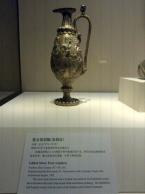
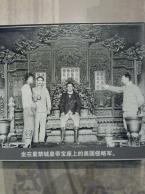
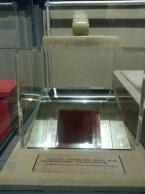
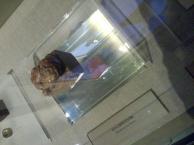
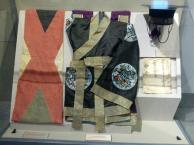
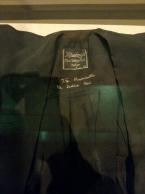
Rosie Great to see christmas dinner, an epic blog astonishing about the archery!
Iain Great update Tom, sounds incredibly interesting. Just as well you love dumplings really !